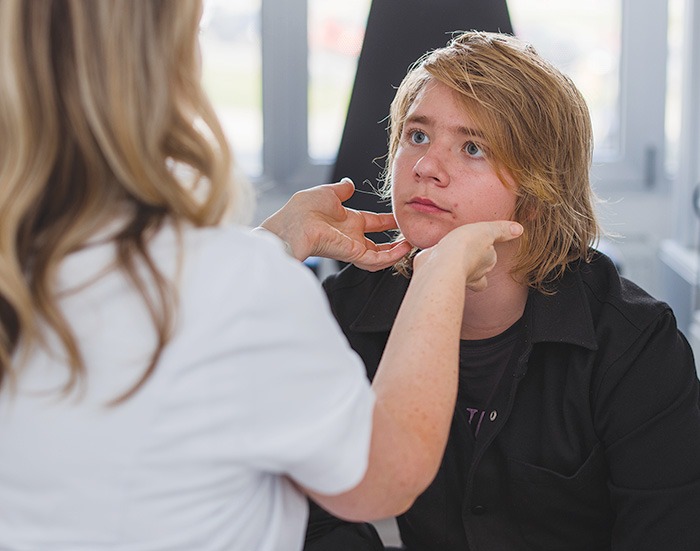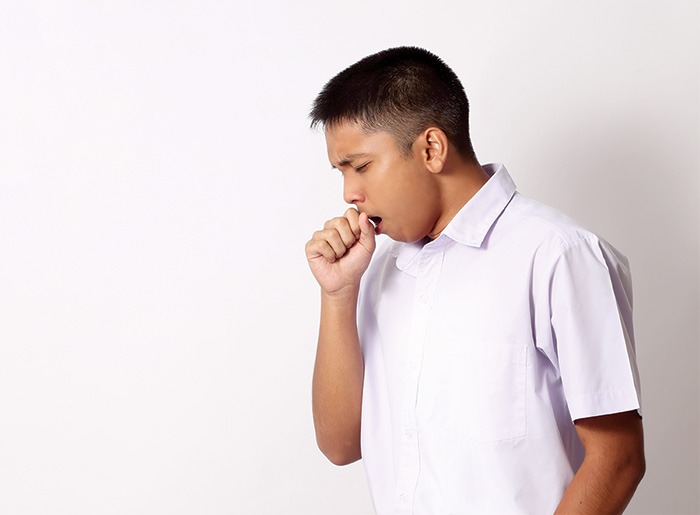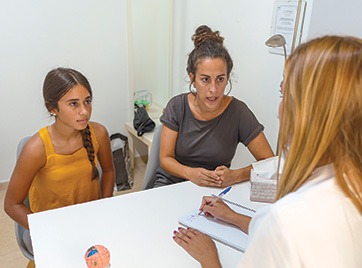Breast cancer is set to become the most diagnosed cancer of 2021, yet thousands of women may have missed out on breast screens.
Up to 19,866 women are expected to be diagnosed with breast cancer this year.
But prolonged lockdowns in the ACT, New South Wales and Victoria have led to countless missed or cancelled breast screening appointments.
As a result, Cancer Australia data indicates there will be between 1,300 and 2,600 undiagnosed breast cancer cases this year.
While data on the impact of this year’s lockdowns is yet to be released, the Australian Institute of Health and Welfare found that only 1,100 mammograms were performed in April 2020, compared to 74,000 over the same period in 2018.
BreastScreen Victoria Health Promotion Officer Kavindhya Almeida said that while clinics are now open, the wait times are long.
‘We encourage women aged 50–74 years old not to delay making an appointment for their regular breast screen,’ she said.
Pharmacists’ role in breast cancer awareness
Oncology and GP pharmacist Jessica Chapman-Goetz MPS knows just how important breast cancer awareness and detection is, after being diagnosed in 2015 at the age of 26.
While many healthcare services were unavailable during recent lockdowns, community pharmacists were able to stay in regular contact with patients.
‘This maintained a very vital link with the healthcare system, particularly for the vulnerable who were advised to stay away from clinics and public settings,’ Ms Chapman-Goetz told Australian Pharmacist.
Throughout the pandemic, Ms Almeida said BreastScreen has engaged pharmacies to promote their Mobile Screening Service, which prompted patients to book appointments through health promotion displays.
‘Pharmacies help support these visits through promotion, whether that’s word-of-mouth in conversation with their [patients] or via promotional resources such as flyers and postcards,’ she said.
Now, pharmacists have an opportunity to maintain awareness of health conditions that require screening, such as cardiovascular disease, STIs and prostate cancer, so they don’t continue to fall by the wayside.
For pharmacists who are home medicines review (HMR) accredited, Ms Chapman-Goetz said the consultations provide an opportunity to increase health literacy beyond chronic disease management, including through promoting and discussing screening.
‘In the comfort of their own home, patients often speak more openly about their health,’ she said. ‘If screening or follow-up is required, the accredited pharmacist could notify the GP through the HMR report.’
GP pharmacists also have an opportunity to help patients keep on top of screenings through GP management plans (GPMP).
‘Templates may vary between practices, however a section on screening exists in the document I use for a new GPMP,’ Ms Chapman-Goetz said.
‘It serves as a prompt to check when the patient last had a faecal occult blood test, a pap smear, a mammogram or a bone mineral density test.’
While some of these may not apply to the patient, it is a useful reminder for the clinic and patient to ensure that screenings are up to date.
‘Reminders can be set in the clinic’s software, so the patient and GP can be notified when screening is next due,’ she added.
At-risk groups
There are several patient cohorts at risk of developing breast cancer. Women aged 50–74 are recommended to have a breast screen every 2 years, particularly if they have used hormone replacement therapy.
Patients with a close family history of breast cancer, for example, a mother or sister who had breast cancer before the age of 50, may be eligible for annual mammograms from 40 years of age.
People with a previous diagnosis of breast cancer or a BRCA1 or BRCA2 mutation are similarly at risk.
Having dense breasts or lifestyle factors, such as inactivity or smoking, are also contributors.
To get a sense of who to broach the topic of breast screening with, community pharmacists can gauge patients’ age, check what medicines they take while dispensing, or scan them to identify any potential lifestyle factors.
But as it’s a sensitive topic, it’s important to determine how well the message will be received. Patients may be reluctant to discuss screening due to cultural reasons, for example, or when the environment is not sufficiently private.
‘Not everybody feels comfortable talking about breast screening when there’s a queue of [patients] behind them,’ Ms Chapman-Goetz said.
A good way to maintain discretion is by asking patients if they have been able to keep on top of all their screenings through the pandemic.
‘If they say no, you can ask questions such as, “Have you thought about booking in again, do you see a GP regularly, or do you get screening reminders from your clinic?”,’ she said.
Ms Almeida pointed out, however, that breast screening is a population-screening program, for those with no signs or symptoms of breast cancer.
‘Anyone who is concerned about a symptom, or an unusual change to the look and feel of their breasts, should see their doctor as soon as possible,’ she said.
Breast awareness
Despite some groups being more at risk, breast cancer can strike anywhere, anytime.
Around 1,000 young women will be diagnosed with breast cancer this year, and nine out of 10 women diagnosed do not have a familial link.
The National Breast Cancer Foundation therefore advises all women to check their breasts once a month.
‘Self-checking is what led me to find mine, so I’m certainly a very strong advocate [for it],’ Ms Chapman-Goetz told AP.
Pharmacists could encourage patients to set monthly reminders in their phones. If they don’t feel confident in their ability to self-check, patients can be encouraged to book in to see their GP for advice.
Self-checking can be challenging for younger women, as breasts can change throughout the menstrual cycle.
‘But the more regularly you check, the more aware you become of what is normal for you,’ Ms Chapman-Goetz said. ‘If something is different, you pick it up quicker, even if you’re not quite sure what it is’.
When it comes to breast cancer, early detection is crucial.
‘Women are getting longer [5 year survival rates] than they were a few decades ago, but it’s really important to [catch] it early,’ Ms Chapman-Goetz said.
‘We know that when breast cancer is detected and treated early, the patient has better outcomes.’
Get involved
Pharmacists can order a range of free hard copy resources, or download others on the BreastScreen website, to share with patients about the importance of breast screening.
‘This includes posters that can be displayed in pharmacies to help promote the BreastScreen program,’ Ms Almeida said.
‘Pharmacists can [also] get in touch with BreastScreen to organise breast health education sessions to increase their awareness and support them in having conversations about breast screening with [patients].’
Patients eligible for breast screens can book online at www.breastscreen.org.au or call 13 20 50



 Pharmacists have always prescribed, but they have the potential to prescribe much more
Pharmacists have always prescribed, but they have the potential to prescribe much more



 Sponsorship information
Sponsorship information


 Talking to patients who have questions
Talking to patients who have questions





